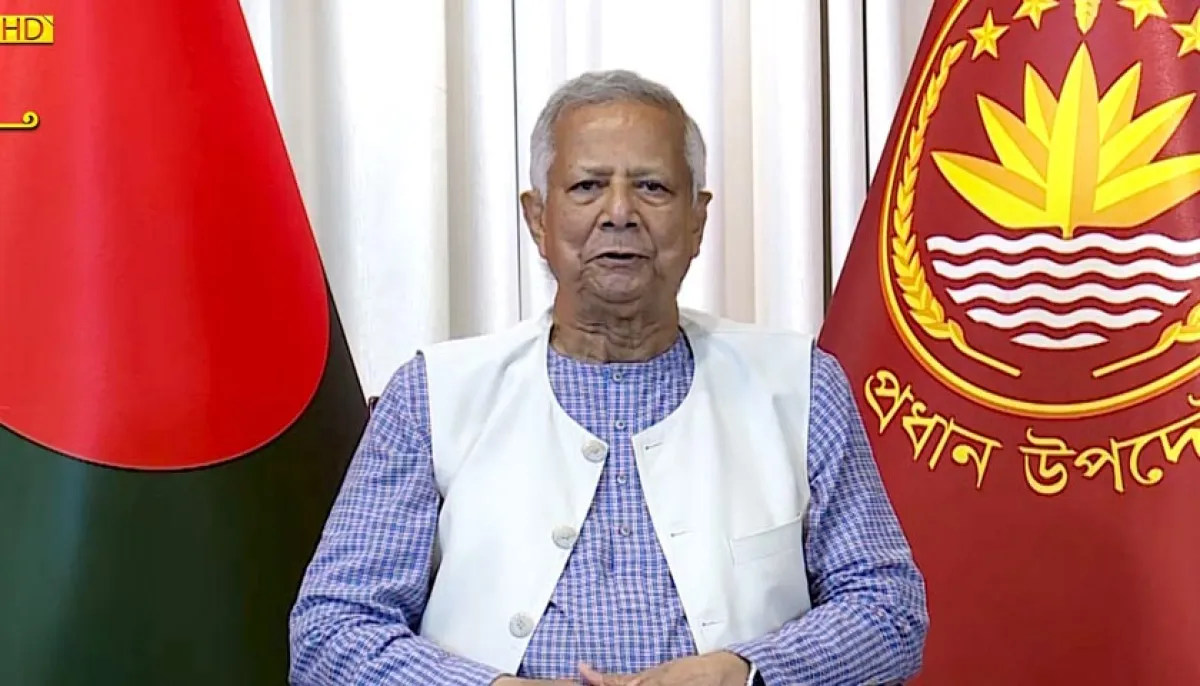
Chief adviser Professor Muhammad Yunus on Friday said that the next general election will be held on any day in the first half of April in 2026.
He made the announcement during a televised address to the nation on the eve of Eid-ul-Azha.
‘Based on this announcement, the Election Commission will provide a detailed roadmap for the elections at an appropriate time,’ he said.
‘I have repeatedly said that this election will be held between December and June next year. The government is doing whatever is necessary to create an environment conducive to elections in the country during this period,’ he said.
Yunus said, ‘I know that there is great interest among political parties and the public to know when the next national election will be held. It is important to remember here that as long as the country has plunged into deep crises since independence was due to flawed elections. Through repeated accumulation of power through a flawed election, a political party turned into a barbaric fascist.’
The chief adviser said those who organised those elections were identified as criminals by the nation. The party that came to power through such elections was also hated by the people, he added.
A major responsibility of this government is to hold an election in a clean, festive, peaceful, and massively participated atmosphere so that the country does not fall into a new crisis in the future, said the chief adviser.
For this, institutional reform is the most important, he said, adding, If good governance cannot be ensured in the institutions involved with the election process, all the sacrifices of the students and the public will go in vain.
‘We took responsibility on the basis of these three mandates: reform, justice and elections. In that regard, I believe that we will be able to reach an acceptable position in terms of reform and justice by the next Eid al-Fitr.’
He said, particularly with regard to the trial of crimes against humanity, which is our collective responsibility towards the martyrs of the July mass uprising, we will be able to see visible progress,’ he said.
‘We will be able to implement the mandate you have entrusted with us, even if it is minimal. In this regard, we have discussed with all parties to organise the freest, fairest, competitive and acceptable elections in history,' he said.
‘We want elections that will satisfy the souls of the martyrs of the uprising and bring peace to their souls. We want the largest number of voters, candidates and parties to participate in the next elections. May this be remembered by the nation as the freest, fairest and impartial election,’ he said.
‘After a century and a half, a truly representative parliament will be formed in the country. A huge group of young people will get the opportunity to vote for the first time in their lives. We are committed to the nation to take all necessary steps towards these goals,’ he said.
He urged the countrymen to obtain specific commitments from all political parties and candidates in their areas that they approve the reforms on which consensus was achieved in the first session of the next parliament without any cuts.
The chief adviser urged the people to obtain a promise that they will never compromise on the independence, sovereignty, territorial integrity and national dignity of Bangladesh and will not sell the country’s interests to any power outside the country.
‘You will obtain specific commitments from them that they will never, under any circumstances, violate your democratic rights and human dignity. You will take a pledge from them that they will run the country with complete honesty and transparency and will keep themselves completely free from all kinds of corruption, partisanship, tender manipulation, syndicate manipulation, extortion, terrorist activities and anti-people activities,’ he said.
He said the next election is not just about holding peaceful elections rather it is an election to build a ‘New Bangladesh’, as aspired by the students and common masses.
‘In this election, there will be only known parties. They will have their known symbols. But the voter has to find out who the candidates behind this symbol are ready to build a ‘New Bangladesh’ for you. How committed they are?’ he said.
